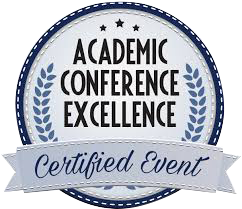Naghme Talakoub
Private Practies, USA
Title: The effect of laser therapy in the treatment of mucositis in cancerous patients
Biography
Biography: Naghme Talakoub
Abstract
Introduction & Aim: Oral mucositis is a common and debilitating condition in patients who go through radiation and chemotherapy. It appears as small patches to extensive ulcerations and tissue necrosis in oral mucosa. The prevalence of mucositis is 40-100% depending on the type of the cancer and the therapy undertaken. The aim of this study is to evaluate the effect of the Low Level Laser Therapy (LLLT) on reducing the symptoms of mucositis.Methods & Materials: Between Dec 2009 to Aug 2011, 36 patients who underwent chemotherapy or head and neck radiotherapy were randomized to receive LLLT and standard drug treatment for mucositis that was a suspension mixture of AlMG-S, Diphenhydramine, Nystatin, Lidocaine and Sucralfate. To be included in the study, patients had to be over 18, have a histological diagnosis of cancer, non-smokers, have an ECOG performance status of 0 or 1 and have an oral mucositis condition that has brought them to office for treatment. 36 patients were divided into 2 groups: those who received laser treatment and the control group. 8 patients in each group (laser and control) underwent radiation chemotherapy, 10 patients in each respective group underwent chemotherapy. The mean age was 45 to 47. A diode laser, emitting continuous light at 660 nm, 100 mW with a spot size of 0.1 cubic cm, was utilized for this study. The LLLT treatment was applied daily immediately after the appearance of the symptoms of mucositis for the duration of five days. The application time per point was 5 sec and the total application time was 12 min.Results: Results showed that only one patient in the laser group had his treatment delayed or interrupted, while seven people in the control group had to postpone their treatment due to mucositis complications. Only two patients in the laser group needed to take opioids for their pain, while ten patients in the control group took opioids. Only two patients in the laser group needed IV hydration, while twelve in the control group had to get IV hydration due to compromised food intake. Three patients in the laser group received GCSF while seven in the control group received it. No patient in the laser group hospitalized due to mucositis, while three patients in the control group had to be hospitalized for additional care.Conclusion: It is conclude in our study that LLLT for oral mucositis due to radiotherapy or chemotherapy in cancer patients is effective and can alleviate the complications of the condition. Further studies need to be conducted in order for the treatment to become a standard care for the cancer patients suffering from mucositis.

